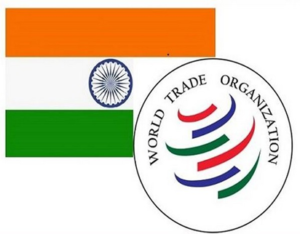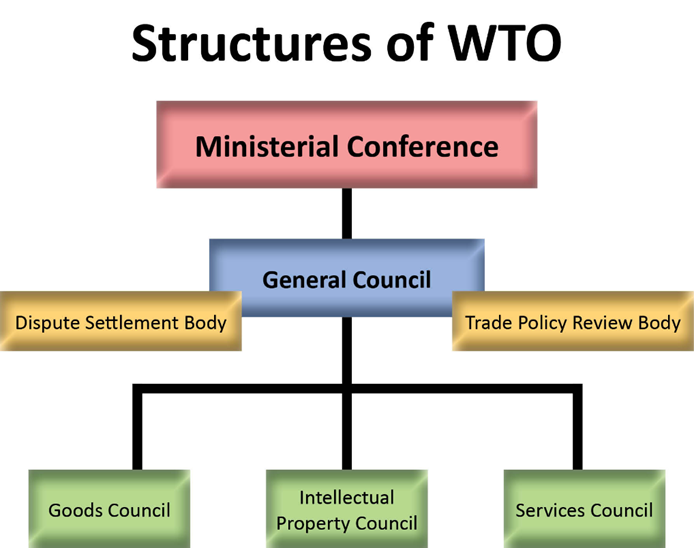TIGER IN THE ROOM AT ABU DHABI
Relevance: GS 2 – Important International institutions, agencies and fora-their structure, mandate.
Why in the News?
- India’s foreign policy achievements are clearly demonstrated in multiple regions, showcasing its diplomatic expertise.
- Given this, it is imperative for India to lead initiatives for a successful conclusion of the 13th WTO Ministerial Conference in Abu Dhabi, commencing on February 26.
- The absence of such leadership could potentially diminish the importance of India’s diplomatic endeavors on the global stage.
Historical Context
- The previous Ministerial Conference (MC) in the Arab world occurred in 2001 in Doha, Qatar, following the 9/11 attacks.
- Global leadership united during this time to convey solidarity and cooperation for the greater good.
- Abu Dhabi aims to replicate this historical significance, particularly after successfully hosting COP28 in Dubai the previous year.
Current Global Challenges
- Present challenges such as the pandemic, ongoing conflict in Ukraine, Israel-Hamas tensions, and violence by non-state actors in the Red Sea region have heightened global vulnerability.
- The world is in need of a collective resolve akin to that seen during the 2001 Doha Ministerial Conference (MC4).
- The Abu Dhabi Ministerial Conference should strive to produce a declaration that serves as a milestone towards creating a safer and more harmonious world for all.
Mixed Outcomes of MC4
- Despite the challenges of realpolitik, the outcomes of the Doha Ministerial Conference couldn’t always be fully implemented for the benefit of all members.
- This highlights the reality that achieving ideal results is often constrained by practical considerations.
Notable Wins:
- In 2001, at Doha, there was a significant achievement in waiving patent rights for specific medications aimed at combating HIV/AIDS.
- India successfully defended and achieved interim success for its right to subsidize farmers producing essential staples like rice and wheat at the Bali Ministerial Conference in 2013.
- The Trade Facilitation Agreement, reached at Bali, stands as another notable accomplishment in improving global trade facilitation processes.
Importance of Engagement
- Active participation yields positive outcomes while disengagement leads to deadlocks, leaving no recourse but complaint. This applies not only to individual countries but to all WTO members collectively.
- Call for Engagement: Other WTO members, including India and the US, are encouraged to increase their involvement within the WTO framework to jointly address multiple global challenges.
- Forward-Looking Engagement: The US is urged to abandon its rigid stance of insisting on a unilateral approach to overhaul the WTO’s dispute settlement system.
- India is advised to avoid advocating for tariffs on cross-border digital trade, as such measures are detrimental to all parties involved.
- Expansion of Negotiations: India actively participates in negotiations concerning emerging issues such as investment facilitation and electronic commerce, contributing to the WTO’s evolution and relevance in the modern global economy.
Evolution of India’s Position
- India, along with other developing countries, once opposed freer export of capital at the WTO in the mid-1990s. However, significant changes have occurred since then, both domestically and globally.
- Benefits of Increased Engagement: Contrary to common belief, increased engagement will enhance India’s competitiveness, leading to greater growth and the creation of new job opportunities.
- Enhanced engagement will also advance trade causes, such as facilitating the freer movement of temporary workers through trade visas.
- Proactive Stance: India should adopt a proactive stance, akin to a “tiger in the room,” rather than merely being an elephant.
- Positioned on the verge of significant advancement, India must strive to bridge its economic gap with other major economies.
- Importance of Multilateral Trade System: Achieving this vision relies on a predictable multilateral trade system under the WTO.
- The success of MC13 and their equitable implementation are crucial in realizing this vision.
- Embracing Vasudhaiva Kutumbakam: India should seize this opportunity to reiterate the concept of “vasudhaiva kutumbakam,” emphasizing global unity and interconnectedness.
WTO Establishment:
- Founded in 1995, the WTO succeeded the General Agreement on Tariffs and Trade (GATT), which was established post-World War II.
Objective:
- The primary goal of the WTO is to facilitate smooth, free, and predictable trade flow.
Membership:
- The WTO boasts 164 members, representing 98% of global trade.
Development and Negotiations:
- The WTO evolved through a series of trade negotiations known as rounds, conducted under the auspices of the GATT.
- GATT aimed to eliminate quotas and reduce tariff duties among participating nations.
Rule Formation:
- The rules of the WTO, encapsulated in its agreements, are the outcome of negotiations among member states.
- The current framework largely stems from the Uruguay Round negotiations (1986-1994), which extensively revised the original GATT.
Headquarters:
- The WTO Secretariat is headquartered in Geneva, Switzerland.
WTO Ministerial Conference:
- As the highest decision-making body of the WTO, the Ministerial Conference convenes approximately every two years.
- All WTO members participate in the conference, with the authority to make decisions across all matters covered by multilateral trade agreements.
- Various Ministerial Conference:
- MC1 — Singapore, 9-13 December 1996
- MC2 — Geneva, 18-20 May 1998
- MC3 — Seattle, November 30 – December 3, 1999
- MC4 — Doha, 9-13 November 2001
- MC5 — Cancún, 10-14 September 2003
- MC6 — Hong Kong, 13-18 December 2005
- MC7 — Geneva, 30 November – 2 December 2009
- MC8 — Geneva, 15-17 December 2011
- MC9 — Bali, 3-6 December 2013
- MC10 — Nairobi, 15-19 December 2015
- MC11 — Buenos Aires, 10-13 December 2017
- MC12 — Geneva, 12-17 June 2022
- MC13 — Abu Dhabi, 26-29 February 2024
Mains question
In what ways have Ministerial Conferences (MCs) of the WTO shaped global trade policies? Analyze the significance of MCs in addressing evolving economic challenges. (250 words)





